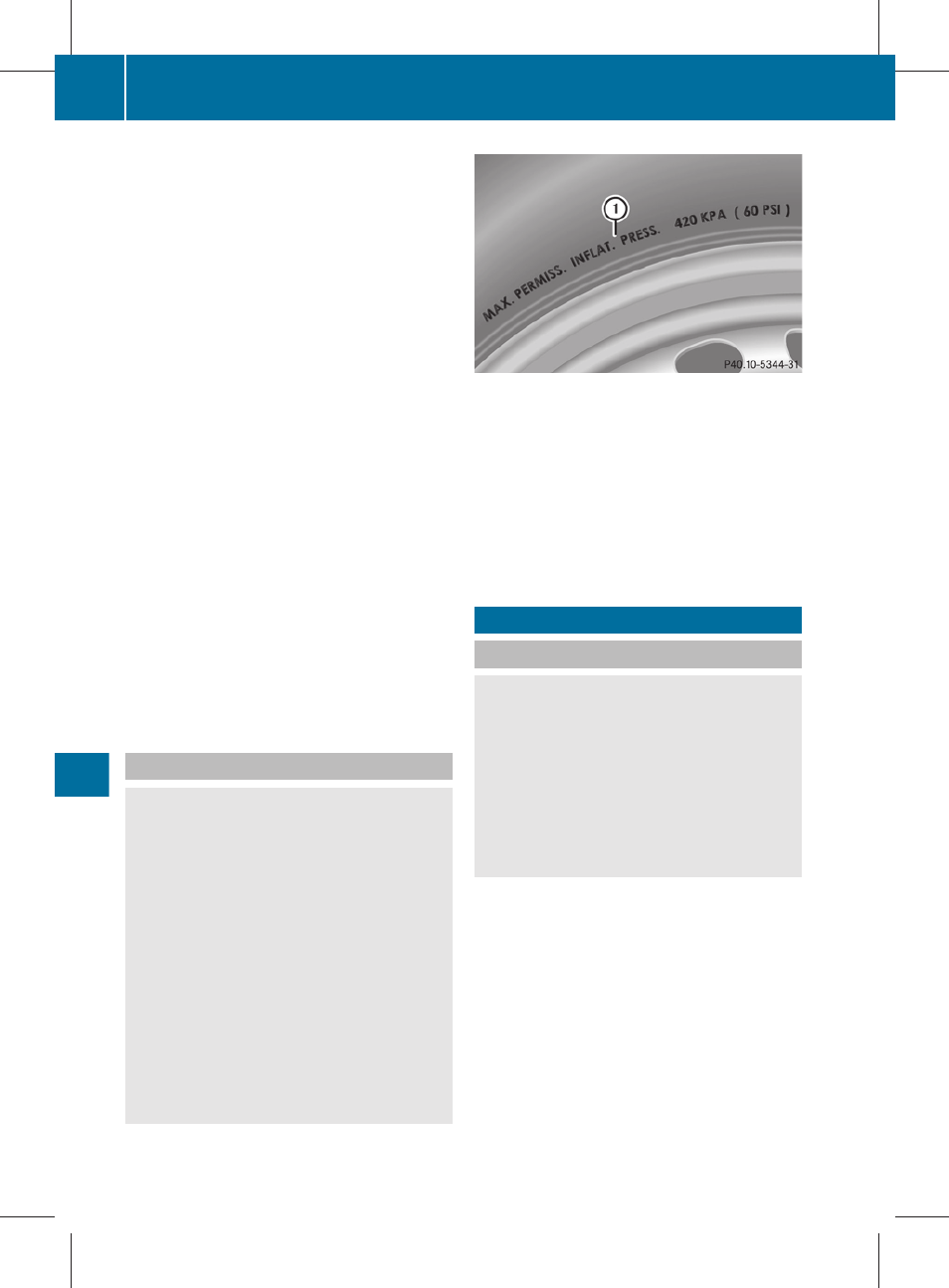Maximum tire pressures, Loading the vehicle, Instruction labels for tires and loads – Mercedes-Benz 2011 E Class Sedan User Manual
Page 362: Tires and wheels

X
Press the a button.
The current tire pressure of each wheel or
the
Tire pressures will be
displayed after driving a few
minutes message is shown in the
multifunction display.
X
Press the : button.
The
Use Current Pressures as New
Reference Values message appears in
the multifunction display.
If you wish to confirm the restart:
X
Press the a button.
The
Tire Press. Monitor Restarted
message appears in the multifunction
display.
After driving for a few minutes, the system
checks whether the current tire pressures
are within the specified range. The new tire
pressures are then accepted as reference
values and monitored.
If you wish to cancel the restart:
X
Press the % button.
The tire pressure values stored at the last
restart will continue to be monitored.
Maximum tire pressures
G
Warning
Never exceed the maximum tire inflation
pressure. Follow recommended tire inflation
pressures.
Do not underinflate tires. Underinflated tires
wear excessively and/or unevenly, adversely
affect handling and fuel economy, and are
more likely to fail from being overheated.
Do not overinflate tires. Overinflated tires can
adversely affect handling and ride comfort,
wear unevenly, increase stopping distance,
and result in sudden deflation (blowout)
because they are more likely to become
punctured or damaged by road debris,
potholes etc.
:
Maximum permitted tire pressure
(example)
i
The actual values for tires are specific to
each vehicle and may deviate from the
values in the illustration.
When adjusting the tire pressures always
observe the recommended tire pressure for
your vehicle (
Loading the vehicle
Instruction labels for tires and loads
G
Warning
Do not overload the tires by exceeding the
specified load limit as indicated on the Tire
and Loading Information placard on the
driver's door B-pillar. Overloading the tires
can overheat them, possibly causing a
blowout. Overloading the tires can also result
in handling or steering problems, or brake
failure.
Two instruction labels on your vehicle show
the maximum possible load.
(1) The Tire and Loading Information placard
is on the B-pillar on the driver's side. The
Tire and Loading Information placard
shows the permissible number of
occupants and the maximum permissible
vehicle load. It also contains details of the
360
Loading the vehicle
Tires and wheels
BA 212 USA, CA Edition B 2011; 1; 5, en-US
dimargi
Version: 3.0.3.6
2010-05-20T13:33:46+02:00 - Seite 360